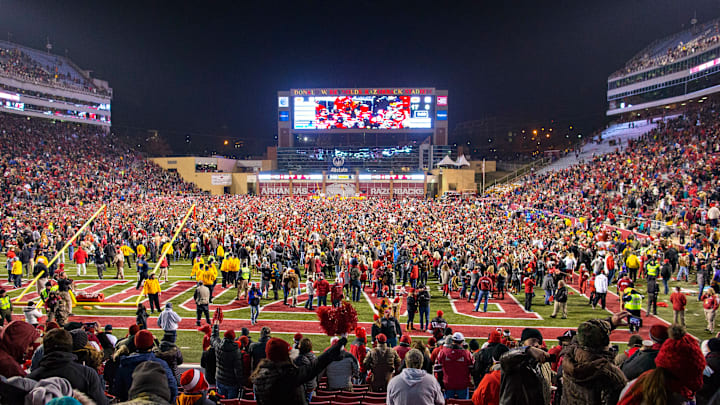Alabama athletic director Greg Byrne probably thought he had the perfect solution to field and court storming. His proposal? If fans storm the field, their team automatically forfeits the game. Simple, right? Well, not so fast.
Byrne’s idea, which he recently shared with ESPN, is rooted in player and fan safety, which is a valid concern. After all, the SEC and other conferences have been fining schools left and right for fans storming the field after big wins, yet it still keeps happening. Vanderbilt was slapped with a $500,000 fine for storming the court after beating Kentucky, and similar incidents have occurred across college sports. So Byrne’s thinking is, "Hey, if a team just flat-out loses when their fans storm the field, that'll stop it." But will it really?
The Glaring Flaws in Byrne’s Plan
At first glance, forfeiting a game as punishment sounds like a strong deterrent. No team wants to celebrate a win, only to have it erased because of overzealous fans. But there’s one big issue that makes this plan completely impractical: what’s stopping a few fans of the opposing team from blending in and rushing the field in home team gear?
Imagine a close game at a packed stadium, and the visiting team is about to take a tough loss. What’s to stop a handful (or more) of rival fans from tossing on the home team’s colors, running onto the field, and causing an automatic forfeit? There’s literally no way to regulate who’s a real fan and who’s just trying to sabotage the result.
And let's be real, opposing fans already do wild things to troll their rivals—this would just give them another way to interfere. The potential for chaos is through the roof.
Field storming isn’t just about reckless fans causing mayhem. It’s a deeply ingrained tradition in college sports. When a team pulls off a shocking upset, the pure emotion of the moment often leads to an all-out celebration. Trying to kill that with an over-the-top penalty like a forfeit isn’t going to work—it’ll just shift the conversation from “field storming is dangerous” to “this rule is ruining college football.”
Can’t wait to wear Bama gear and storm the field every game they win!
— Payton Mitchell (@lPaytonl) February 12, 2025
So…what would stop an visiting teams fans from buying home team T-shirts and storming the field if the home team won to force a forfeit
— Jonathan Thomas (@JTizzle521) February 12, 2025
If you're the home team & your team forfeits if your fans rush the field you better expect a group of fans from the opposing team dressing up in your school colors to storm the field to force a forfeit. Sounds like a good idea that is going to be sabotaged in a big way.
— PNW_Hiker87 (@PNW_Hiker87) February 12, 2025
Yes, safety should be a priority. No one wants to see players, coaches, or fans get hurt in the chaos of a field rush. But automatically erasing a victory is an extreme overcorrection that invites even more controversy. A better approach would be to improve security, create better crowd control measures, and maybe enforce controlled celebrations instead of an outright ban. What about telling fans they'd be allowed on the field once the players and coaches have exited the playing field?
Even Byrne himself admitted that he knows his idea isn’t going to be well-received. “I’m not overly optimistic and understand it’s not a popular opinion in a lot of people’s view,” he said. That’s an understatement.
At the end of the day, college football thrives on emotion, passion, and unforgettable moments. Taking away a win because students rushed the field would be like trying to put out a bonfire with gasoline—it’s only going to cause more problems.
Byrne might be convinced this would "stop" field storming, but college football fans are already poking holes in the logic. And honestly, they have a point.
